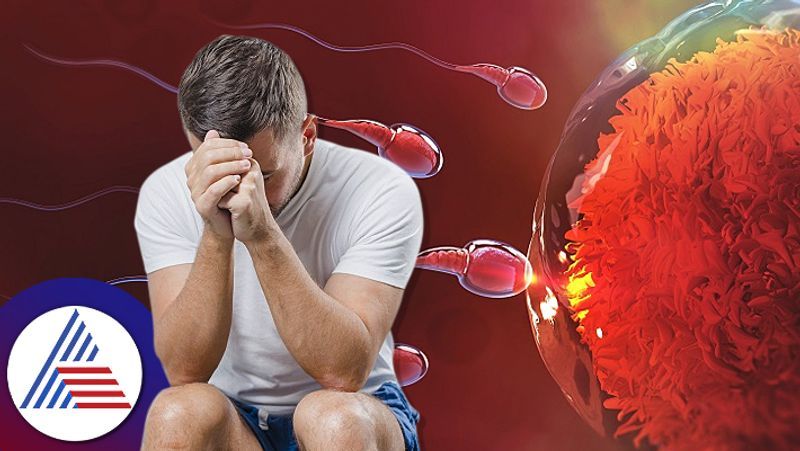A recent study published in Nature Communications has revealed that stress may actually enhance sperm energy production and movement. Months after a stressful experience, sperm respiration (energy output) and motility (movement ability) were found to improve, suggesting a fascinating connection between environmental stress and male reproductive health.
Driven by global declines in fertility and semen quality, this research led by scientists at the University of Colorado Anschutz Medical Campus delves into the cellular impact of stress on sperm. Focusing on energy production and motility—crucial attributes for successful sperm performance—the team sought to understand whether stress could have a lasting effect on sperm, one that persists well beyond the stressful period itself.
According to PsyPost, the study, led by Tracy Bale, the Anschutz Foundation Endowed Chair in Women’s Integrated Mental and Physical Health Research at CU Anschutz, is particularly timely. “As a neuroscientist, understanding the impact that the preconception environment has on post-conception embryo and brain development is critical to identifying points of intervention, prevention, and causal mechanisms important for neurodevelopmental disorders,” Bale stated.
This groundbreaking study was conducted in two primary phases: testing the impact of stress on human sperm and investigating similar stress effects in mice to uncover biological mechanisms in detail.
In the human segment, researchers observed 34 healthy men from Denver over multiple visits spanning several months, collecting semen samples and assessing their stress levels. Advanced sperm analysis software measured key motility metrics, such as average velocity, linear velocity, and progressive motility. Intriguingly, they found that stress experienced two to three months before sperm collection correlated with significantly higher sperm motility.
The improvements in motility included increased circular and straight-line velocities, as well as enhanced progressive motility, a key factor in successful fertilization.
To explore these mechanisms further, the team conducted a series of stress-simulation experiments in mice. In a controlled laboratory setting, they observed that stress hormones interacted with epididymal epithelial cells—essential for sperm maturation. Under stress, these cells exhibited significant changes in mitochondrial energy dynamics, a central process in cellular respiration. They released extracellular vesicles carrying stress-related molecules that interacted with sperm, effectively transferring energy boosts and enhancing motility.
Nickole Moon, the paper’s first author and CU Anschutz researcher, likened this effect to an engine adjusting to a hill climb: “Imagine you have a car that’s struggling to get up a steep hill. When the engine is stressed, the car becomes less efficient. However, with a little more gas, you can boost the overall performance for a smoother drive. Just as your car becomes more efficient under stress, with the right adjustments, cells improve their energy production and movement when stress-induced factors are present.”
Further examination revealed even more profound molecular transformations within stressed cells, including alterations to the chromatin structure that houses genetic material. The changes in gene expression influenced pathways tied to energy metabolism and mitochondrial function, reshaping baseline energy settings in ways that persisted well beyond the initial stress.
The reprogrammed cells released stress-altered extracellular vesicles, serving as a sophisticated cellular signaling mechanism. When these vesicles interacted with sperm, they boosted both respiration and motility, providing an adaptive advantage that could bear implications for fertility treatments and male reproductive health.
While these findings offer significant insights, the researchers caution that there are limitations. The study could not confirm if the motility boost directly translates into increased fertility in humans, nor did it assess potential impacts on embryo or fetal development.
Additionally, while the study successfully highlighted enhanced motility and mitochondrial function, further research is needed to explore effects on embryo and neurodevelopmental outcomes.
Future studies will delve into specific signaling molecules and proteins within these extracellular vesicles, aiming to unlock the full scope of stress’s effects on reproductive health. “Chronic stress experience can have a significant impact on reproduction and offspring development,” Bale told PsyPost, emphasizing the importance of timing when considering pregnancy.
In a promising step forward, researchers are working to analyze the potential impacts of past stressors on future offspring. Bale’s team hypothesizes that stress impacts on sperm could affect embryo development rates, influencing brain function post-birth. “Our long-term goals are to conduct embryo studies in mice to confirm the specific molecules involved and the timing. We need to understand how the rate of brain development matters for how the brain functions after birth, and where we can improve outcomes for improving risk,” Bale explained.
Her colleague, Neill Epperson, professor and chair of the CU Department of Psychiatry, underscored the long-term potential of this research. “The impact of stress on germ cells, fertility, and the mechanisms underlying the transmission of parental stress experiences across generations are not well understood,” he noted.
You may also like

New Man Utd boss Ruben Amorim responds after receiving brutal nine-word message from fans

IPL 2025 Most Expensive Players List: 200 crore rupees spent on 10 players? Many players became rich before IPL 2025 auction

A Stroll Through History – 9 Best Museums in Delhi…

Where are BBC Strictly champions Darren Bennett and Lilia Kopylova now?

Kodakara black money case: BJP should change party symbol to sack, says CPI(M)







